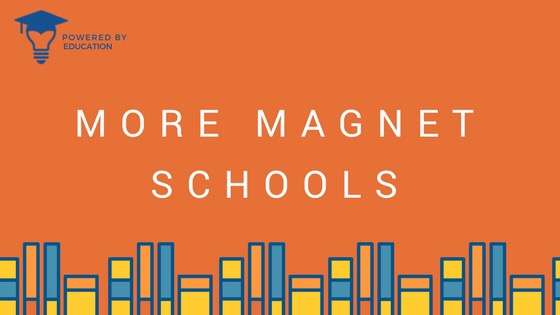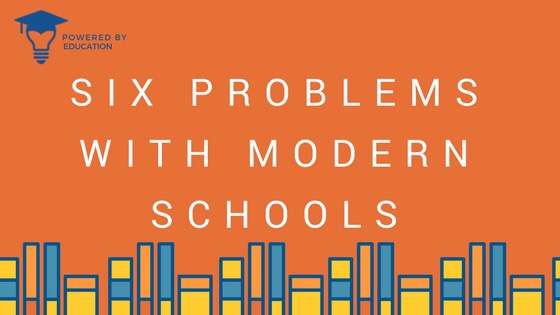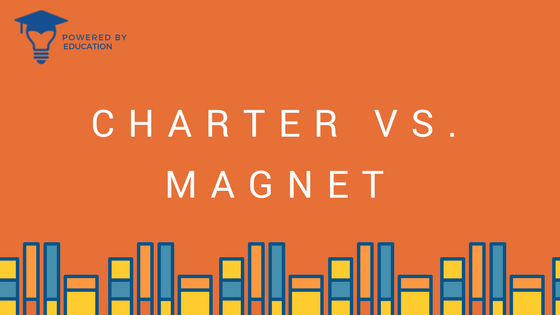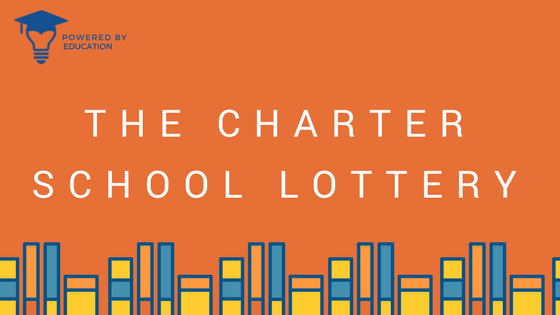You have more options than you may think…
Brick & Mortar Public Schools
Compulsory Attendance
Your child’s age is your first indicator of his or her eligibility for beginning school. Students may start kindergarten if they turn five on or before September 1st. A child does not have to enroll in school at age five, but must be enrolled in 1st grade if he or she is six on or before September 1. Thereafter, your child must continue attending school until he or she graduates from high school or turns 17.
If your child is 5 but will not turn 6 until after September 1, you may choose to not send your child to school until the following year if you sign a form provided by your school district. see more >
Required Documentation
South Carolina school districts set the requirements for what documentation is required prior to enrolling a student in their district. To get that information, contact the district directly.
Some legal documents are required for South Carolina students to attend school:
- Certified Birth Certificate/proof of identity
- Official copy of records/transcripts from the previous school the child most recently attended
- A shot immunization record (or proof that immunization is not required for the child)
- Click here to view the immunization requirements
- Proof of home address (for example, a rental agreement or tax statement)
School Fees
Paying some fees is a part of public education, though it is primarily a free education. Students are expected to supply their own basic school supplies such as paper, pencils, and notebooks. Each district has a list of approved expenditures for students. Fee waiver forms can be requested from the school if there is a situation that prevents a family from being able to pay for required materials or events.
Some typical items on that list include:
- Lunch
- Summer school
- Student parking passes (high school)
- Lost textbooks
- Late or lost library books
- Field trips
- Special class-required fees (e.g., science lab fees)
Public Charter Schools
What are Charter Schools?
Charter Schools are tuition-free public schools operated by independent, non-profit governing bodies.
Parents, teachers, and community leaders sign a “charter” or contract with a school district or state agency to create a charter school and give students more educational options than their assigned school. Charter schools have flexibility over classroom hours, curriculum, and employment policies, but are subject to periodic reviews based on student performance. In South Carolina, public charter school students are measured against the same academic standards as students in other public schools. Local boards of education monitor the academic and financial performance of charter schools, and, can revoke or refuse to renew a school’s charter.
South Carolina Charter Schools
A list of active charter schools can be found at the South Carolina Charter School District.
Frequently Asked Questions
Frequently asked questions about charters can be found at the South Carolina Charter School District.
Enrollment
Most charter schools do not have attendance zones. If you are interested in applying for your child, you must apply directly to the school. The application and selection process can be quite complicated. Make sure to contact the school early to determine the correct next steps to applying.
Virtual Public Schools
In South Carolina, thousands of children attend school online in virtual classrooms with state certified teachers. Some virtual programs are open to in-district students only, while others have enrollment open to students across the state.
Phone: (803) 735-9110
Grades: 9-12
Phone: (803) 212-4712
Grades: K-12
Phone: (864) 236-4006
Grades: K-12
Phone: (803) 253-6222
Grades: K-12
Phone: (866) 476-6416
Grades: 9-12
Private Schools
What makes a school “private”?
Private schools charge tuition, and many have a religious mission. Some private schools offer families assistance to make tuition payments. Click below for the complete list of over 400 private schools across the state.
Private School Review offers free, detailed information on U.S. private schools combined with useful community data (e.g., housing costs) and maps of the surrounding areas.
*Information on non-public school admission requirements should be obtained from the school directly.
Scholarships
For families who currently want to consider private school options in South Carolina, there are a few programs and organizations that provide vouchers and scholarships! For information on eligibility requirements and which schools participate in scholarship programs visit: Palmetto Kids First.
Educational Choice Programs
The State of South Carolina has two tax-credit scholarship programs.
Refundable Educational Credit for Exceptional Needs Children
The South Carolina Refundable Educational Credit for Exceptional Needs Children is a refundable tax credit program passed and launched in 2015. Different from traditional tax credit programs, refundable tax credits have greater utility for parents of more modest incomes.
Educational Credit for Exceptional Needs Children
The South Carolina Educational Credit for Exceptional Needs Children is a tax-credit scholarship program enacted in 2013 and launched in 2014. The program provides tax credits of up to 100 percent of donations made to Scholarship Funding Organizations (SFOs). SFOs give private school scholarships to students with special needs.
For more information on policy change or to get involved in the school choice movement in South Carolina visit EdChoice.
Private Virtual Schools
George Washington University Online High School is an online college preparatory academy for motivated students who are willing to be challenged to become the best students and persons they can be. Combining award-winning curriculum with small class sizes and intensive college counseling, students receive a flexible, individualized education attuned to their own needs and goals.
International Academy is a K12, Inc accredited, online private school for grades K–12. Students earn a U.S. high school diploma while using award-winning K¹² curriculum
They offer extensive, individualized academic and counseling support keep students on track. The flexibility allows students to explore their passions. Full-time and part-time options are available.
International Connections Academy is a fully-accredited, online, college preparatory private school serving K–12 students worldwide. The program combines a top-rated curriculum with talented teachers, cutting-edge technology, the flexibility to learn at home, and direct family involvement to ensure each student realizes his or her full potential.
The Keystone School offers flexible education programs for high school and middle school students. Whether your student wants to study full-time or just needs individual classes, they offer more than 170 courses from credit recovery to world languages and AP. Students can enroll at any time.
Home Education
Your options
In South Carolina, parents have the option to educate their children at home, an option known as homeschooling or home education. Parents in South Carolina may choose to homeschool their own children in grades K–12. To homeschool in South Carolina, you must have at least a high school diploma or GED and teach at least 180 days per year. In addition, you must teach the following required subjects: reading, writing, math, science, social studies, and, in grades 7–12, composition and literature. Parents desiring to homeschool their own children, may do so by following these six easy steps.
In addition to complying with the above requirements, you must choose one of these three options for homeschooling legally and follow the requirements listed below the one you choose:
Under the Homeschool Statute:
- Obtain approval from the district board of trustees.
- Contact the board of trustees of your local public school district for information about their homeschool application process, and submit an application.
- Teach the required subjects for the required time.
- Teach the required subjects listed above for at least 180 days per school year at least 4.5 hours, not counting lunch or recesses.
- Maintain records.
- A plan book, diary, or other written record indicating subjects taught and activities in which you and your child participate.
- A portfolio of samples of your child’s work.
- A record of your child’s academic progress assessments.
- Submit a semiannual progress report.
- Submit a semiannual progress report including attendance records and assessments of your child’s progress in each of the required subjects to your school district.
- Ensure your student has access to library facilities.
- Test your child annually.
- Must participate in statewide testing program and the Basic Skills Assessment Program. The tests must be administered by a certified school district employee.
With the South Carolina Association of Independent Home Schools (SCAIHS):
You may homeschool by enrolling in SCAIHS and following the rules and policies for homeschooling that SCAIHS requires. Additional information about SCAIHS is available on its website.
With a homeschool association (also known as a “third option group”)
- Enroll in a homeschool association that has at least 50 member families.
- The South Carolina Home Educators Association (SCHEA) lists several third option groups on its website.
- Comply with your homeschool association’s requirements.
- State law requires homeschool associations to maintain the following minimum requirements for homeschooling parents:
- You must have at least a high school diploma or GED.
- You must teach your child for at least 180 days per school year.
- Your curriculum must include the required subjects listed above.
- The educational records you keep must include: a plan book or other record of subjects taught and activities; a portfolio of samples of your child’s academic work; and a semiannual progress report including attendance records and individualized documentation of your child’s academic progress in the required subjects.
- State law requires homeschool associations to maintain the following minimum requirements for homeschooling parents:
Dual Enrollment
College Credit
Dual enrollment courses are college credit courses. High school students enroll in college courses and earn postsecondary credit upon successful completion of the course. High school credit can also be awarded based on local school policy. Dual enrollment courses can be taught on the college campus, at the student’s high school, or online. The location of the course does not affect its status as a dual enrollment course.
For more information visit the Education Commission of the States.
More about Magnet
Today Magnet Schools of America released a study showing [...]
The Foundation for Blended and Online Learning
In January, K12, INC. announced the launch of The [...]
Six Problems with Modern Schools
The modern school system was created during the Industrial [...]
Charter vs. Magnet
Today, we answer the age old question... what is [...]
Charter School Lottery: Explained
Many question how charter schools choose which students attend [...]




